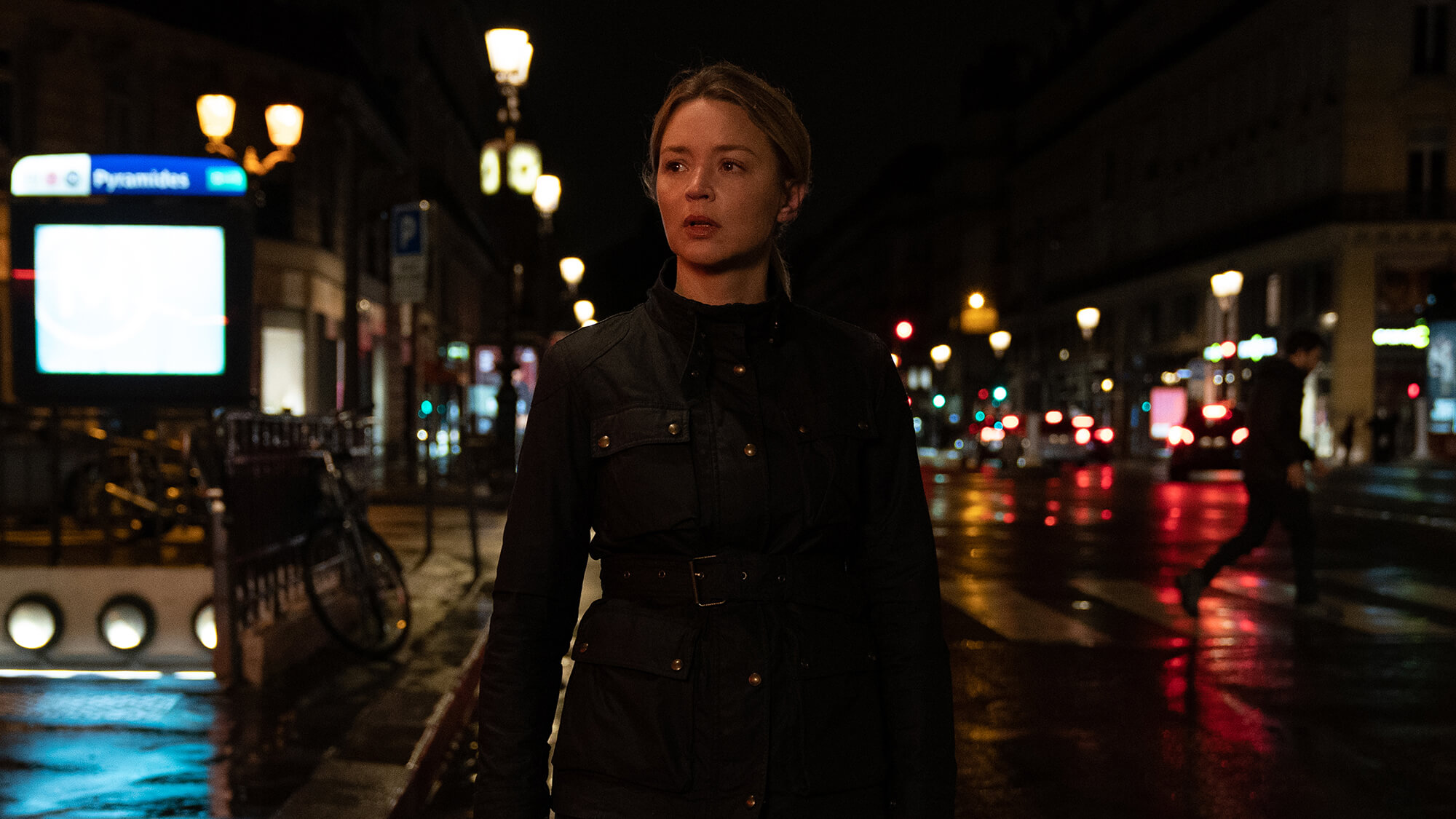Why a gripping new movie about the aftermath of a terrorist attack is personal for its director
After her brother survived 2015 Bataclan concert hall massacre, Alice Winocour wanted to tell a story of resilience and survival

Virginie Efira stars in Revoir Paris. Courtesy of Music Box Films
“I really wanted to make a film about the consequences of a trauma,” Alice Winocour, the French writer/director of Revoir Paris, told me. “It’s not a story about the attack itself. It’s more about how you reconstruct yourself after.”
Revoir Paris concerns the aftermath of a terrorist attack. Mia (Virginie Efira) is a confident 40-something Radio France translator who lives with her doctor boyfriend, Vincent (Grégoire Colin), and zips around Paris on a motorcycle. When a dinner out with Vincent is cut short by a call from the hospital, Mia gets caught in a downpour and ducks into a crowded bistro to wait out the storm. One minute she’s surveying the scene — young women are taking selfies, a middle-aged man (Benôit Magimel) is being feted on his birthday — and the next, she’s trying to make sense of a barrage of bullets on her way to the bathroom. As she finds cover behind a table, we see only terrorists’ feet as glass shatters, and rifles blast until the screen goes black.
After the attack, Mia is like “a ghost in limbo,” Winocour said. Disconnected from the life she returned to after spending three months at her mother’s, the despairing woman tells Vincent that she has become “some sort of an attraction” whom everyone, including him, now treats differently.
At an impromptu visit to the café where the attack took place, Mia learns survivors have been meeting there. Soon, she encounters orphaned teen Félicia (Nastya Golubeva Carax), who shows Mia that she’s in the last photograph her dead parents sent. Outside on crutches is the birthday boy, Thomas, a wry and now-claustrophobic banker about to have a fourth surgery to reconstruct his leg. He remembers every detail of the attack, including seeing his co-workers murdered.
“I was ashamed to be alive and not them,” he tells her. His observations about Mia propel the stoic woman to try to piece together the fragments of her memory — especially a hazy recollection of the person she hid with and the connection they shared.
Though Revoir Paris is fictional, the story of survivors bound up in grief is personal to Winocour, whose brother Jérémie survived the 2015 Bataclan concert hall massacre, one of six French sites targeted by ISIS extremists that resulted in 130 dead and hundreds more injured, some permanently.
For Belgian-French actress Efira, the movie took on additional meaning because they filmed as the terrorists’ trial was underway, with survivors recounting harrowing experiences. “I was so moved by the kindness, the courage, [and] the dignity of the victims’ testimony,” she told me in French via email.
Though her film is not a reconstruction of historical events, Winocour relied on conversations she had with her brother and with survivors whom he introduced her to for the script that she co-wrote with Marcia Romano (Happening) and Jean-Stéphane Bron. She also consulted psychiatrists, who detailed the unreliability of memory after trauma — something depicted in the film when a female survivor accuses Mia of acting selfishly during the attack.
For Winocour, trauma has been a recurring theme. In the historical drama Augustine, her first feature after graduating from France’s prestigious La Femis film school, she envisioned a 19th-century “hysteric” who was treated by famed neurologist Jean-Martin Charcot. In Disorder, a former French soldier with severe PTSD is hired to guard a Lebanese businessman’s wife.
“Generational trauma is kind of my heritage, and my DNA,” she said, explaining that her paternal grandfather was an Auschwitz survivor from Ukraine whose own parents died in the concentration camp. She also lost many other relatives during the Holocaust.
Efira’s family shares that painful history. “Like Alice, my grandparents and ancestors knew the Shoah,” she said. “A large part of my family was decimated at Auschwitz.” Unlike her director, though, she’s not sure how inherited trauma informs her life and work — or if she tapped into it to play Mia, for which she won the 2022 César for best actress. “I imagine that the recognition I felt for the role must also come from that,” she allowed.
One positive of surviving extreme duress that Winocour learned about from therapists — what a character in the film calls “the diamond in trauma,” how something good can come from tragedy, like the budding romance between Mia and Thomas — is true in her own family. When her paternal grandmother, who had been sent to safety in San Francisco during the war, returned to France to find her family, she learned they had all been killed. But during her search, she met and fell in love with Winocour’s grandfather, the Auschwitz survivor. “It’s something that is really important in my family,” she said. “This idea that beauty can arise from tragedy. That they found love despite what they both had lost.”
A message from our CEO & publisher Rachel Fishman Feddersen
I hope you appreciated this article. Before you go, I’d like to ask you to please support the Forward’s award-winning, nonprofit journalism during this critical time.
We’ve set a goal to raise $260,000 by December 31. That’s an ambitious goal, but one that will give us the resources we need to invest in the high quality news, opinion, analysis and cultural coverage that isn’t available anywhere else.
If you feel inspired to make an impact, now is the time to give something back. Join us as a member at your most generous level.
— Rachel Fishman Feddersen, Publisher and CEO